Original article by Jaeyawat , translated by Followin.
Jaeyawat has just joined the recent popular DeSic project BIO Protocol as an ecosystem developer in the Asia-Pacific region. BIO Protocol announced last week that it had completed a $2.9 million community token financing round. Investors include Binance Labs, which is its first investment in the DeSci field, and the specific investment amount is unknown.
He has just published an article outlining the dilemma facing scientific research.
Combined with the recent popularity of DeSci, including the emergence of some meme coins that have increased tenfold or even a hundredfold (such as $RIF and $URO), it may help you better understand the future potential of DeSci and help you better understand this track.
Recently, a video titled "Science is in trouble, and it worries me" has become very popular on YouTube. Video link:
After reading it, Jaeyawat wrote this article to share with the world why science is in trouble.
I am not linking DeSci (decentralized science) to this issue.
But let me explain the problem first, and it's up to you to interpret it.
At first glance, the scientific research seems to be progressing well:
- The number of scientists in the world has reached an all-time high: 8.8 million
- The number of academic papers published hit a new high
That's why most scientists think we're doing pretty well: there's plenty to talk about and plenty of conferences to attend.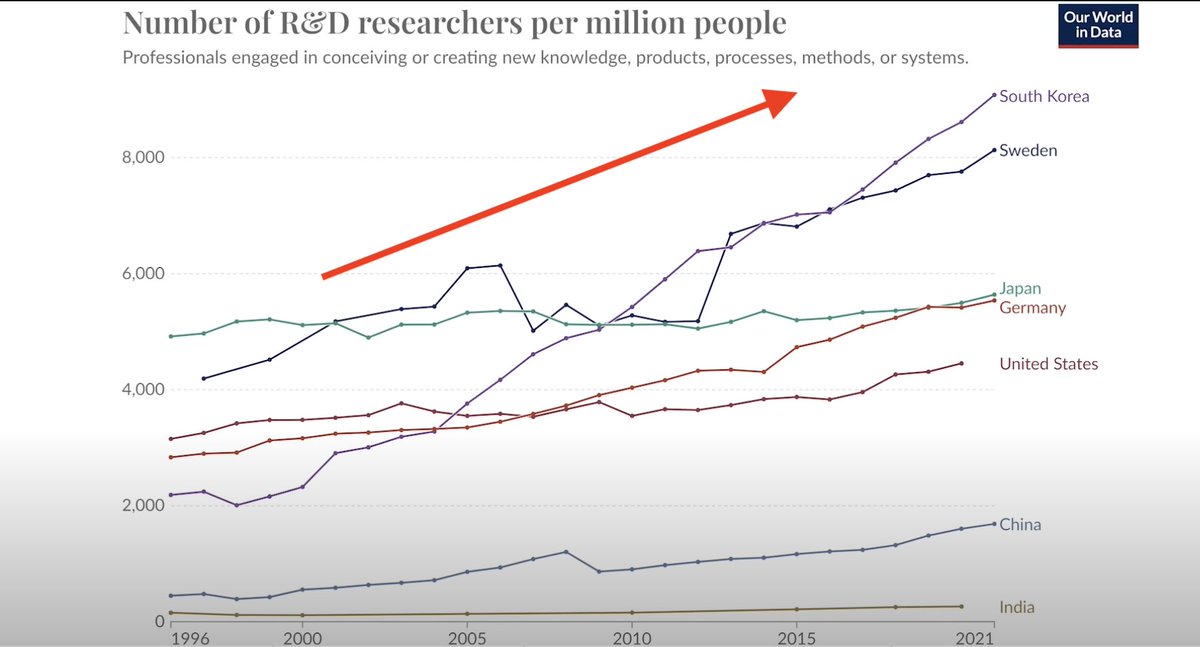

Yet, surprisingly, actual scientific output is decreasing.
Let’s look at the economic impact as a data point: Total Factor Productivity (TFP)
- Inputs: labor, capital, technology
- Output: Goods and Services
While the number of researchers is increasing 🟢, TFP is decreasing 🔵.
The gap between the two? It's widening.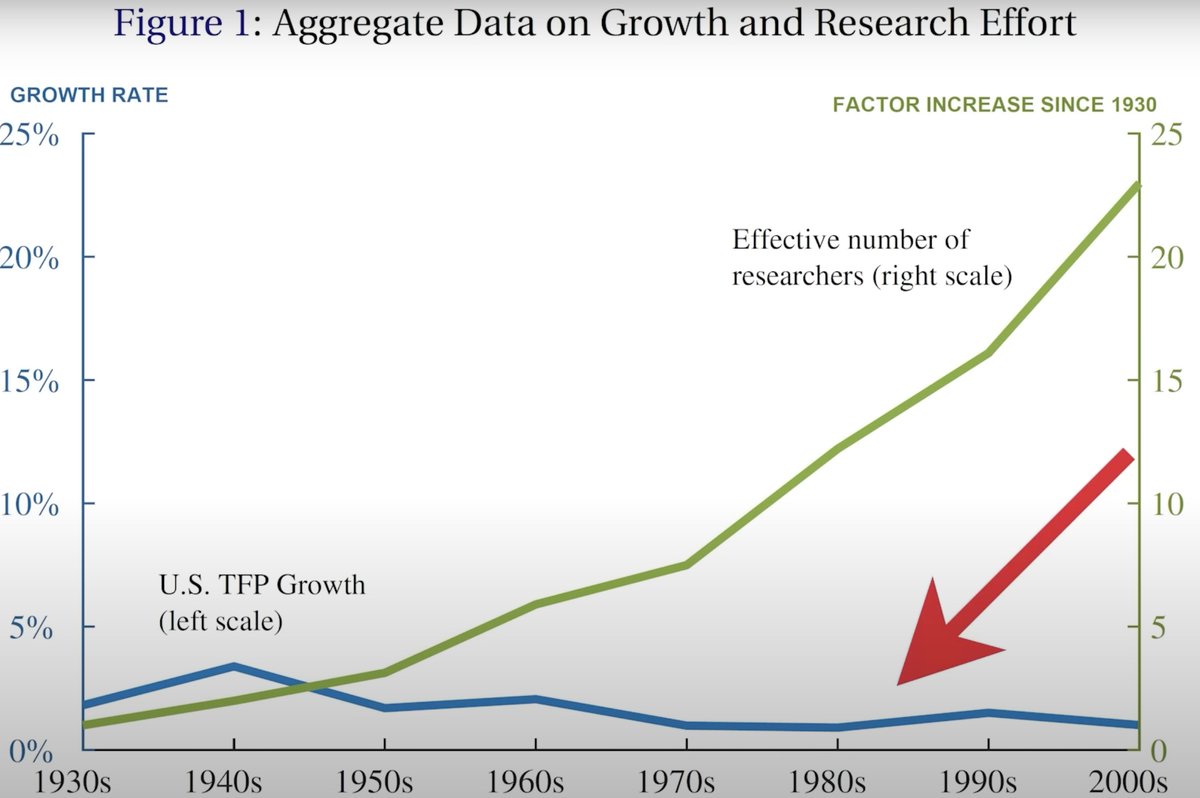

There is also this jaw-dropping curve: FDA drug approvals vs. the number of researchers
- FDA Drug Approvals Down 📉
- Rising number of researchers 📈
The disconnect is obvious.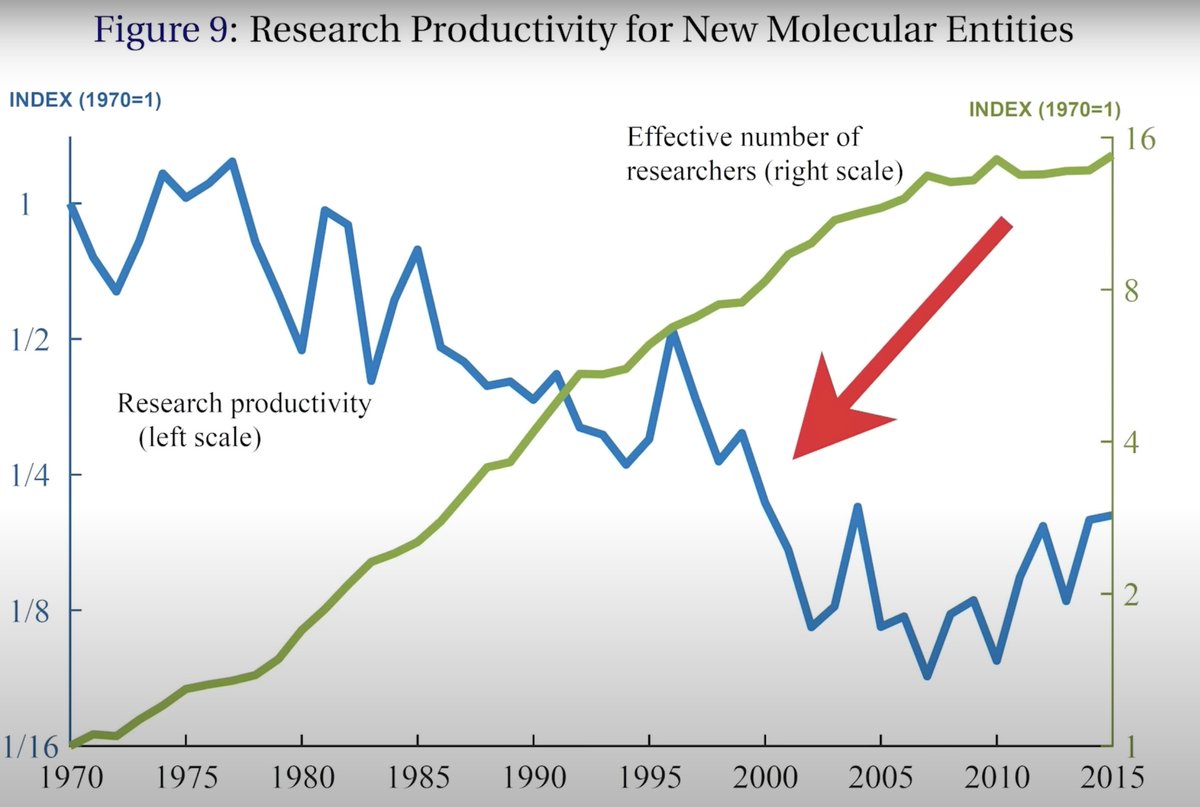

More people ≠ more innovation.
Another angle: the relevance of U.S. patents.
Analyze the relevance of new patents to previous innovations.
Data shows that the innovativeness of patents has continued to decline since the 1960s📉.
This is not just imaginary.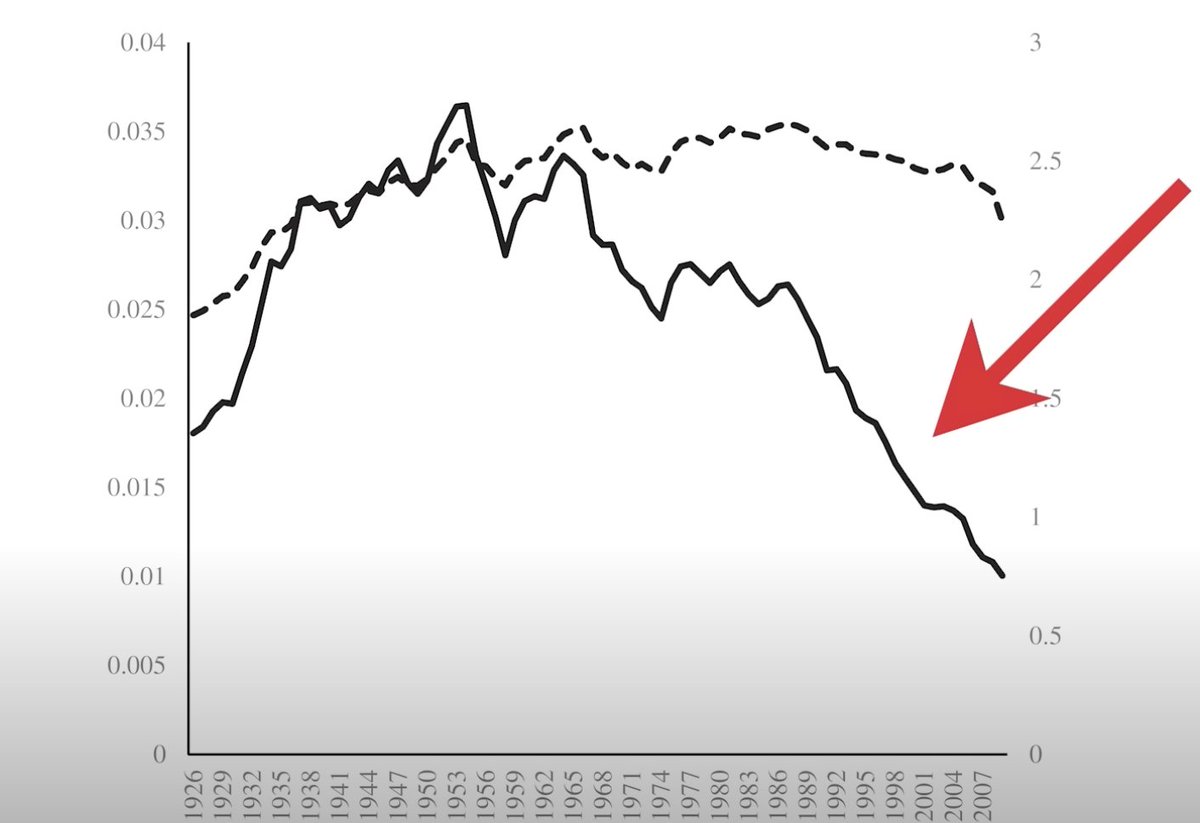

Even worse: the “narrowness” of patents has increased since the 1960s.
What this means is that we’re seeing fewer breakthrough inventions and more minor improvements.
The era of great breakthroughs... has stagnated?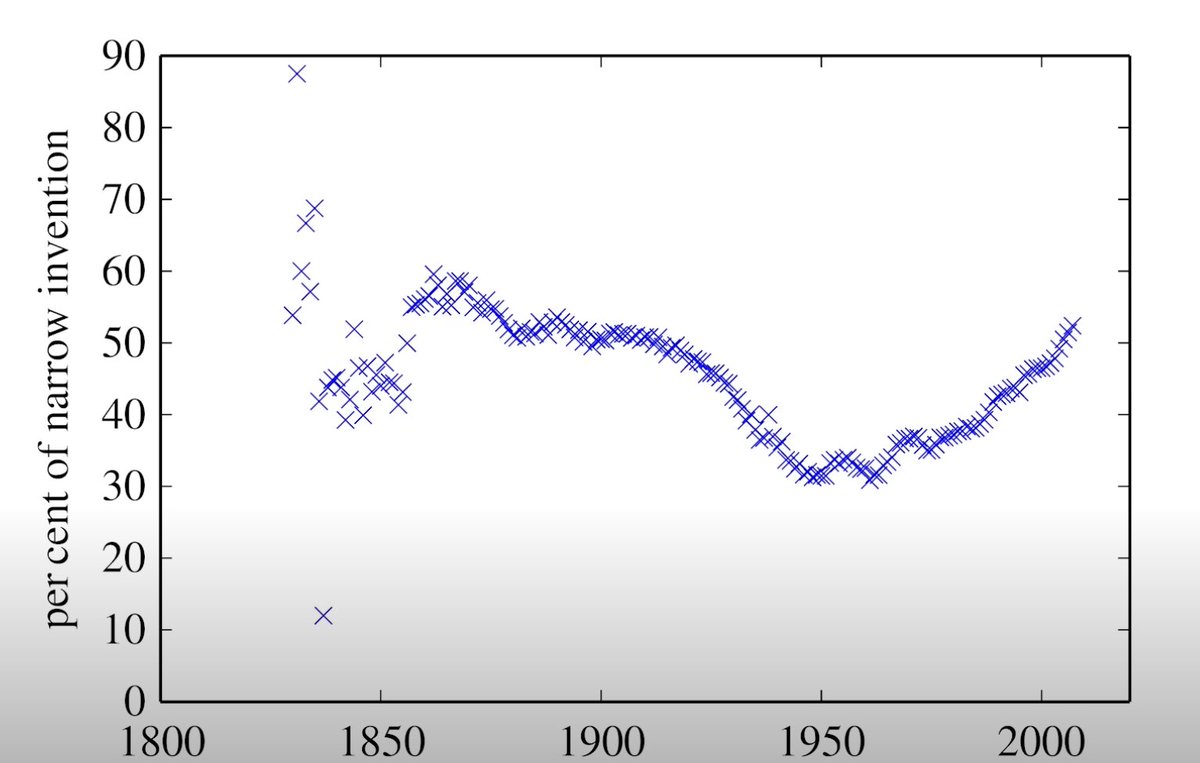

And this research article states: “The disruptive impact of new papers and patents is gradually waning.”
Measurements have shown that disruptive innovation has significantly decreased in many scientific fields.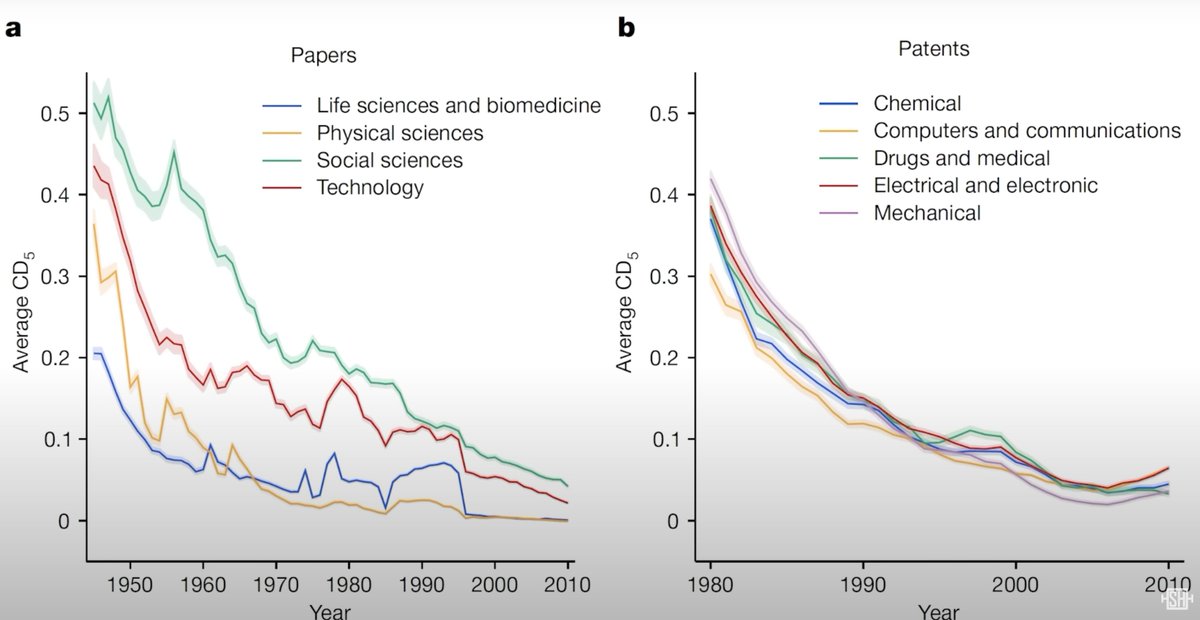

Of course, science still seems to be "successful":
We have AI, quantum computing, nuclear fusion, brain implants...
But these technologies are actually based on innovations from 50 years ago.
Is this due to funding issues?
Take R&D spending after the Apollo moon missions: Government R&D funding as a percentage of GDP has remained constant.
So, money wasn't the main issue...something was wrong.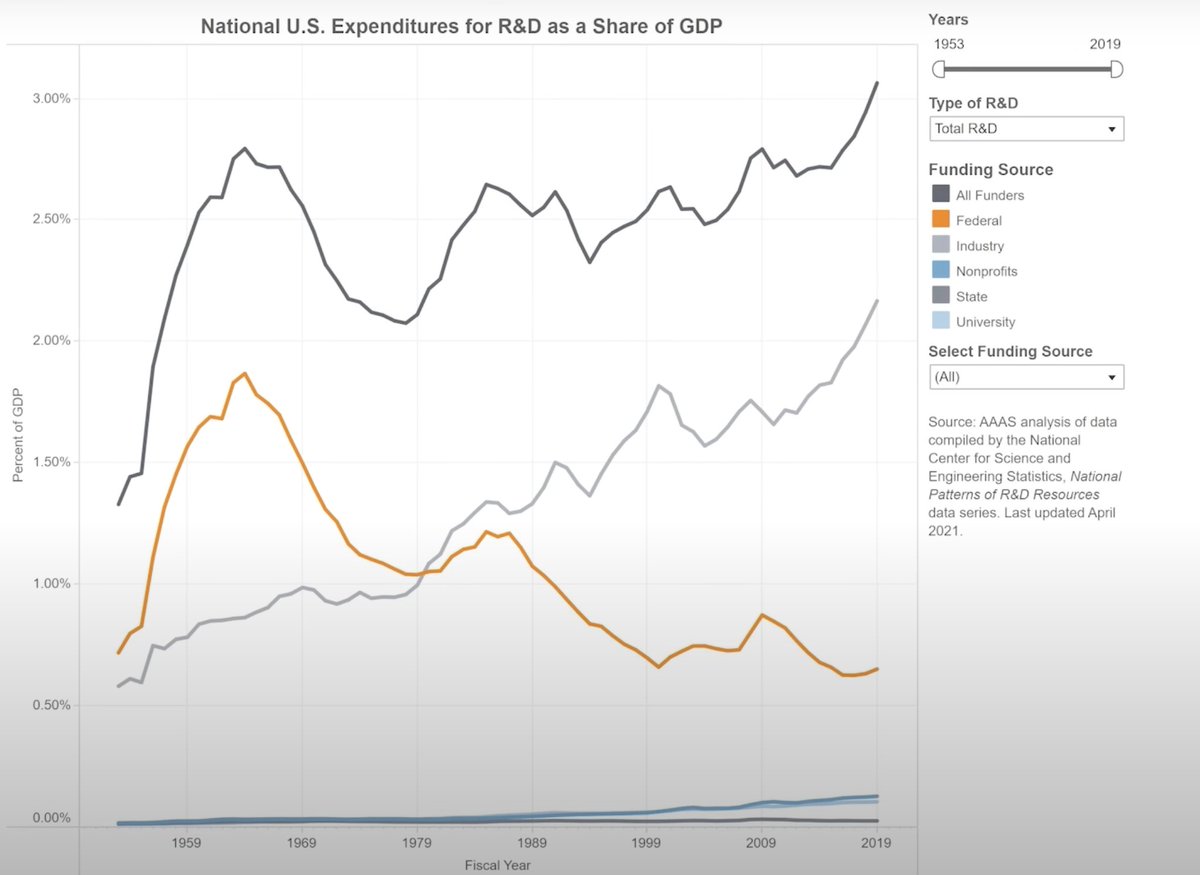

One main reason seems to be: too much bureaucracy.
Like @elonmusk also mentioned when talking about the SpaceX project, he faced bureaucratic problems. Here are the most interesting videos:
Stripe CEO Patrick Collinson worked with some people to find ways to accelerate scientific progress during the epidemic.
They created “Fast Grant,” which allows scientists to apply for funding through a Google form.
It takes scientists just one hour to complete the application.
The question is: why would Patrick do this himself? 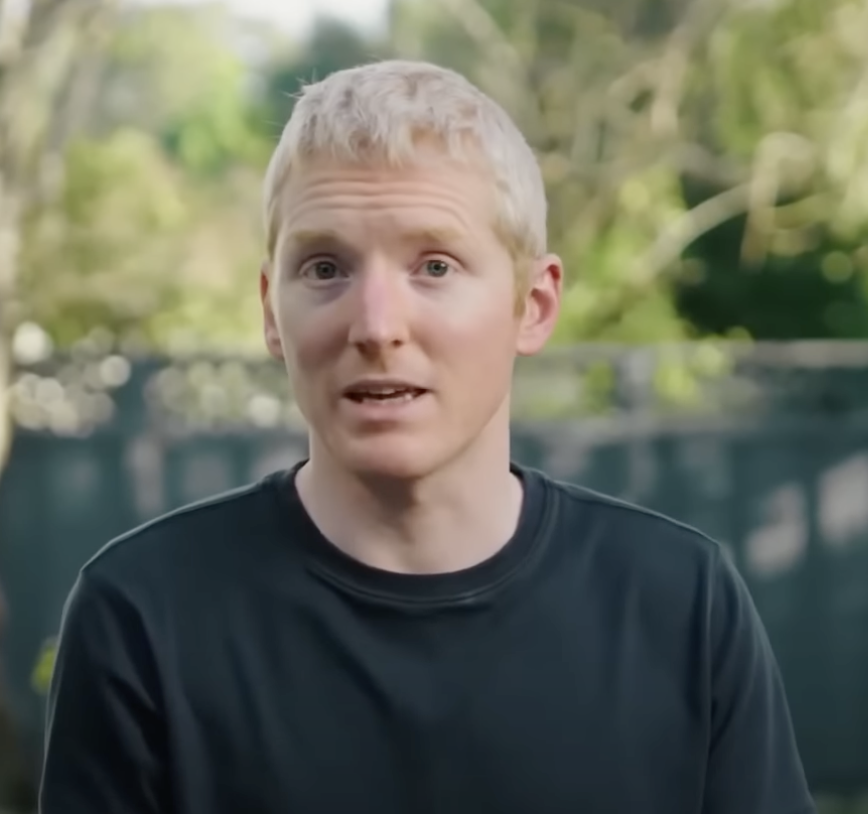

How does the current system work?
For example, to apply for a research grant from the National Institutes of Health (NIH), you will need:
- Use a specific font and size
- The format must comply with specific file requirements
- There are countless cumbersome requirements
It may take several months to complete the entire process.
The bureaucracy in academia is shocking:
- Apply for funding
- Record the use of funds
- Write a report on the use of funds
- Writing reports on other people's reports
- When all of this is done... you retire.

Nowadays, scientists are becoming more and more conservative and afraid to take risks.
They only choose to research mainstream topics that are "more likely to be funded."
The result: low-risk, mainstream research.
Patrick conducted a survey of scientists participating in Fast Grant:
The question is: “If you had complete freedom over your research budget, how much would the direction of your research change?”
78% of scientists said they would like to work on new research topics.
This requires no additional budget, just allows them free reign over their existing budget.
Today's scientific problems are becoming increasingly apparent:
Most scientists are doing what they are forced to do.
Here are some key points that can help science advance:
A simpler and faster way to obtain funds
Providing a safe environment for scientists to pursue their passions
Do you have an idea for a BioDAO?
We invite patients, scientists, and biotech builders to apply for funding and support from the BIO Network, including:
- $100,000 Grant
- Accelerator support (e.g. token economics, DAO setup)
- BIO Launchpad, Bio/Accelerator Rewards and Liquidity
So can DeSci solve the dilemma facing science?
Today, @BTCdayu wrote an article titled "DeSci in One Article - Even More Awesome Than AI Meme? ", which explains the DeSci track, including the background, investment direction, development main line and future potential of this track. You can learn about where the opportunities of DeSci are and what targets are available for entry.







